Ethiopia, where the earliest human fossils have been found, has one of the oldest cultures on Earth. Their history of monarchy dwarfs that of the British, being almost 4,000 years old, until the 1974 revolution when emperor Haile Selassie was overthrown.
Chef and owner Sefanit Sophie Sirak-Kebede was a mere schoolgirl when this happened, studying at an English boarding school. While her husband Menyahill, Meny for short, was training at Sandhurst, for his job as part of the Imperial Guard.
Sophie, who possesses the dark-eyed glamour of a 1920s film star, and her husband didn’t return to Ethiopia after the revolution. After a long career in hospitality, Sophie set up the award-winning company Tobia Teff from a workshop in Wembley, selling ingredients including Teff flour. Teff itself is ancient, farmed for the last six thousand years.
I visited Sophie in Wembley to find out more about Ethiopian cuisine and watch her make injera. She explained that the majority of the Ethiopian diet is vegan due to the Orthodox adhesion to fasting, which they do every Wednesday and Friday as well as the traditional Advent and Lent; in fact, the Amharic word for fasting is identical to the word for vegan.
Ethiopian teff, the world’s smallest grain, it’s gluten-free and iron-rich. It forms the basic diet of Ethiopia in the form of injera, a fermented, pancake-style flatbread. Eating is a communal activity in Ethiopia, in the literal sense that people don’t have their own plates but eat a series of sauces, known as ‘wot’, placed on top of a huge injera bread, like a vast edible tablecloth.
As Sophie says, “He who is alone will die alone. He who is with the family will die with the family. There is no individual plate, you share.”
The culture of hospitality is so important that if people are eating when you enter a room or a restaurant, you will always be invited to join.
Likewise coffee, an important Ethiopian export, which is a ritual. The raw green beans are roasted, then using a special coffee set, the decoction is brewed three times. This used to be accompanied by toasted barley and burning incense, but today, in the cafes of Addis Ababa, you will see young people munching on popcorn with their coffee.
I’d love to visit Ethiopia.
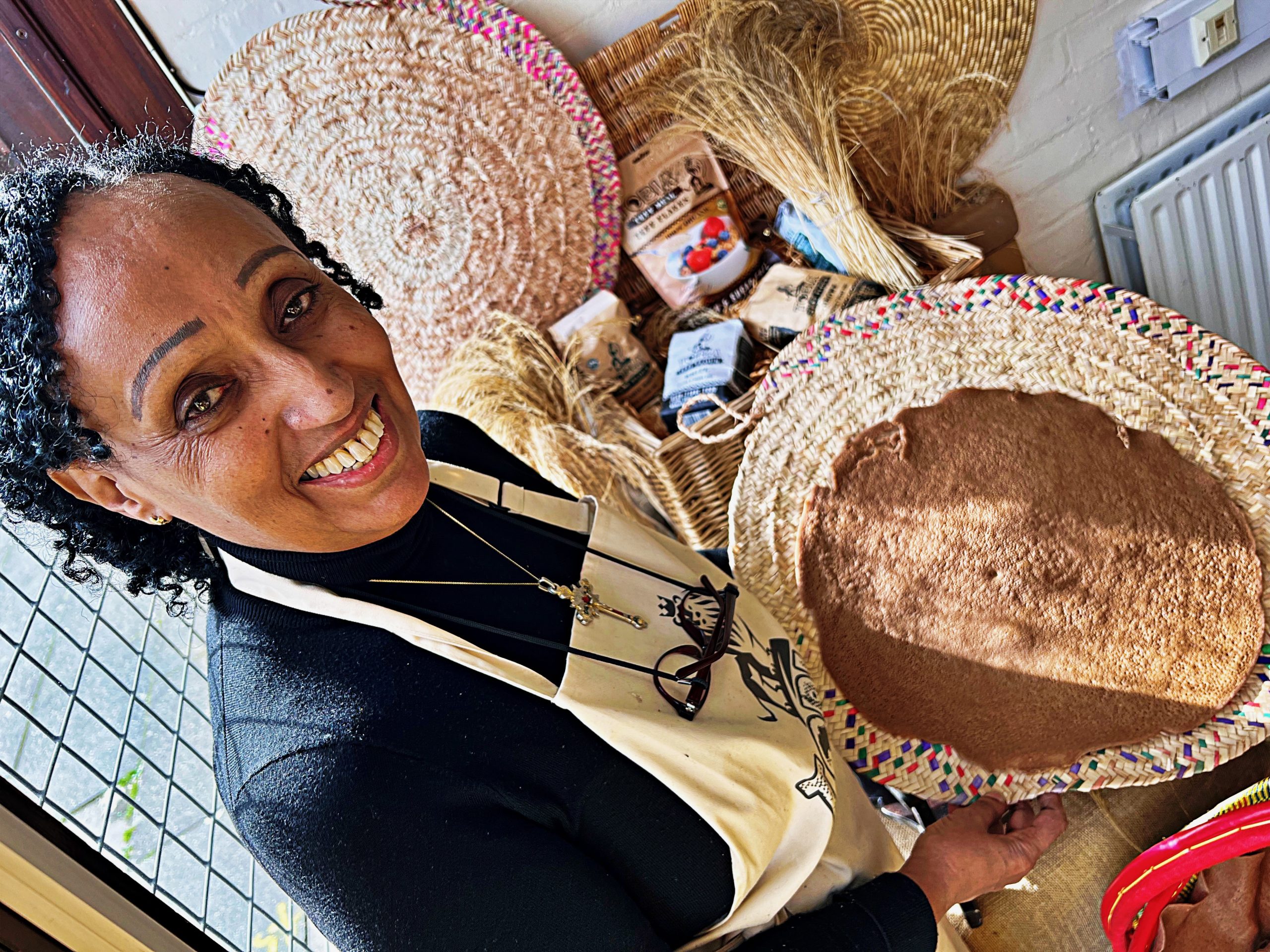
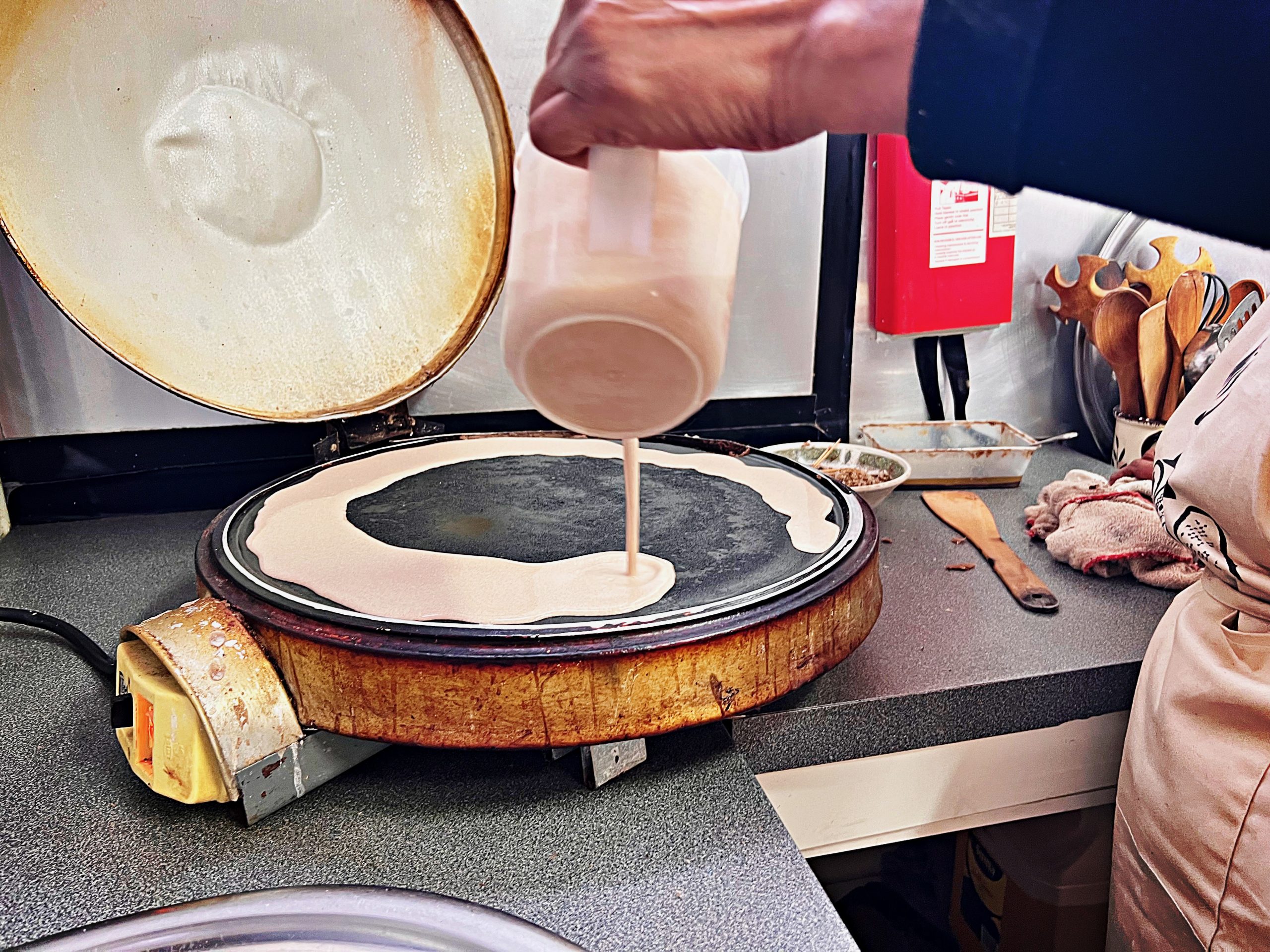
Injera bread
Ingredients
For the starter:
- 250 g teff flour
- 300 ml Luke-warm water
For the teff injera:
- 1 kilo teff flour (Sophie uses 2/3rds brown teff flour and 1/3 white flour)
- 1.2 litres water
- A little clarified butter or vegetable to grease the pan
Instructions
Days 1-3 to make the starter:
- Mix the teff flour with the lukewarm water until thoroughly mixed. Cover and set aside in the fridge for 3 days.
Days 4-8 to make the injera:
- In another bowl, whisk together the flour and 600ml of water.
- Add in the original starter. Cover and set aside for 3 days in a warm place.
- On the 7th day, bring 600ml of water to the boil in a large pan. Add 300ml of the fermented injera batter. Simmer for 6 or 7 minutes on a low heat, stirring constantly. Pour this mixture back into the original bowl and stir well. Cover and leave overnight in a warm place.
- Now, on the 8th day, heat a flat bottomed frying pan over a medium heat. Using a jug, pour the batter, thinly and evenly, in a circle from the outside in a spiral towards the centre. Cover and cook for a minute or two. It should bubble like a crumpet.
- Remove the injera from the pan using a fish slice and set aside to cool. Repeat the process until all the mixture is used. Serve with the sauce. The injera can be rolled up and frozen.
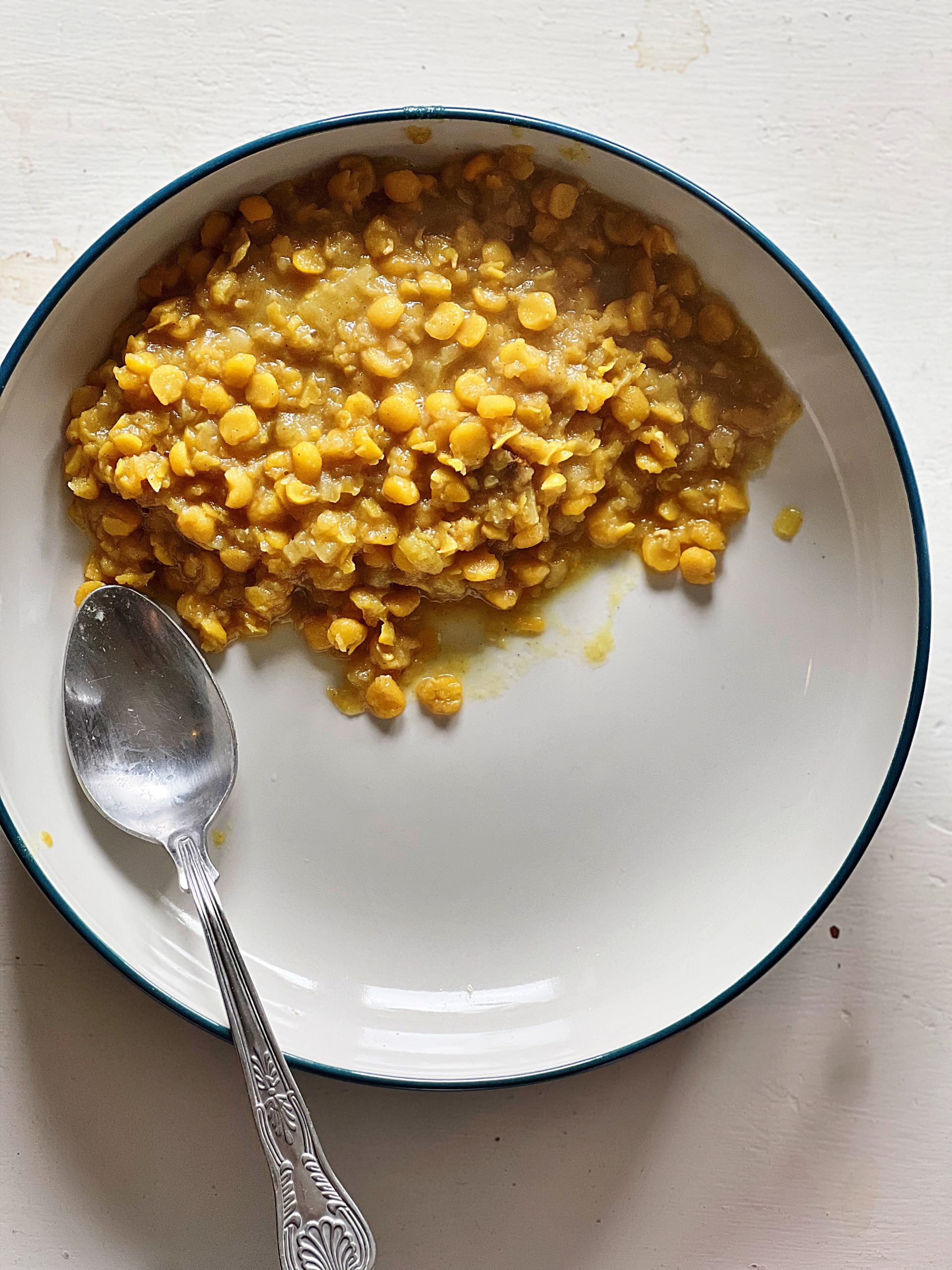
Kik Alicha, split pea and turmeric stew
Ingredients
- 500 g yellow split peas
- 4 or 5 medium brown onions, sliced
- 4 tbsp ghee or sunflower oil
- 5 cloves garlic, minced
- 5 cm fresh ginger, grated
- 2 tsp turmeric or a stick of fresh root, grated
- 1 tsp cinnamon, ground (optional)
- 1 tsp sea salt
Instructions
- Wash the split peas until the water is no longer cloudy. Then soak for at least an hour or leave overnight.
- Prep the onions, cover with water in a large pan and boil until slightly soft. Strain, then fry the onions in butter or oil.
- Add the garlic, ginger and turmeric and cinnamon, if using. Fry for a few minutes until light golden.
- Add the soaked and strained split peas. Add the salt. Cook on a low heat until the split peas are soft, around 60 minutes.
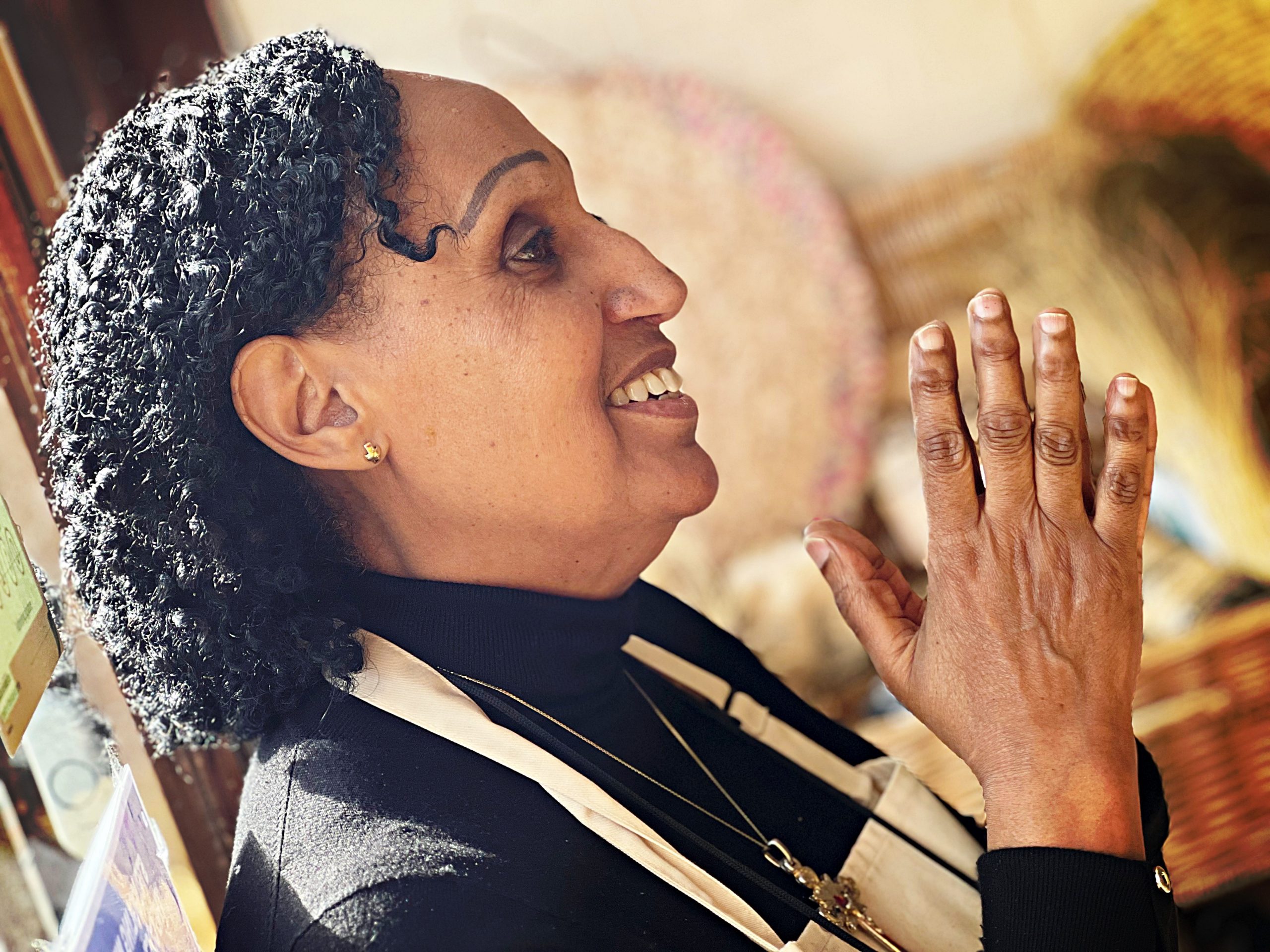

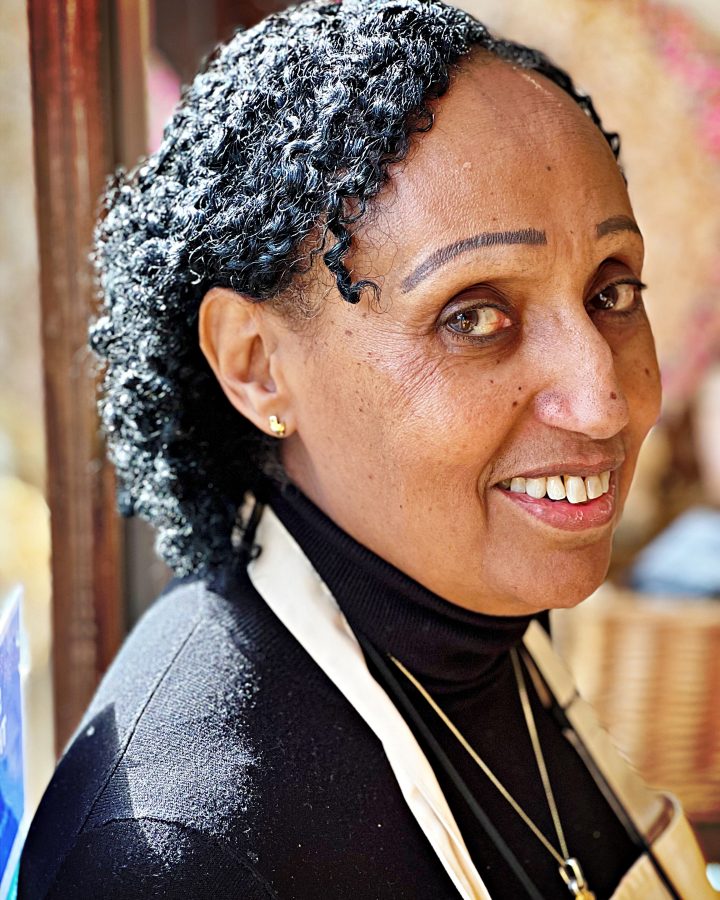
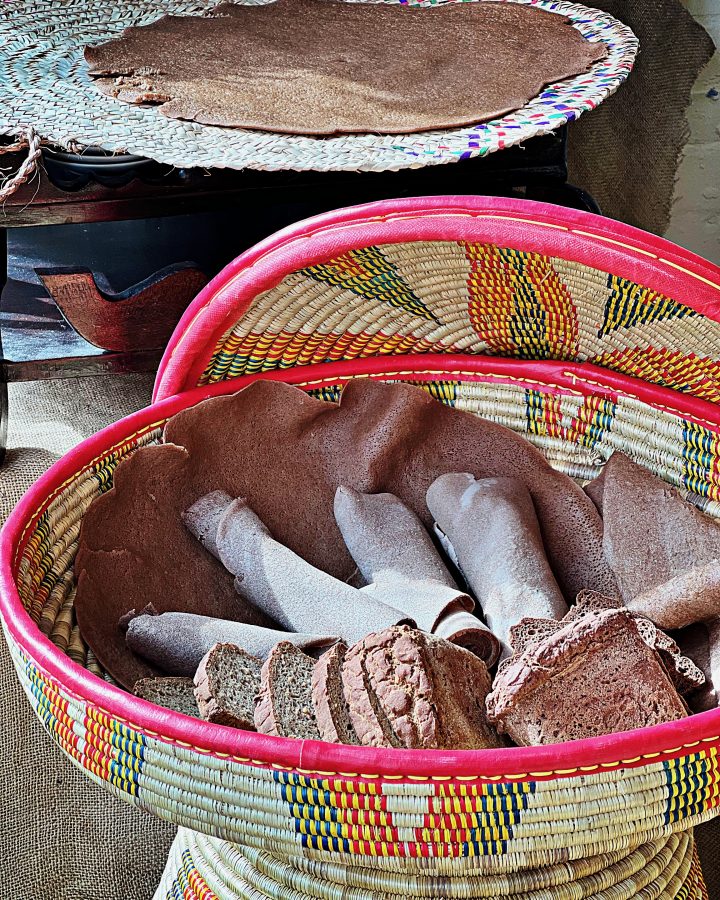

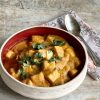
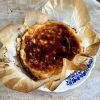
Another unusual snd interesting blog.